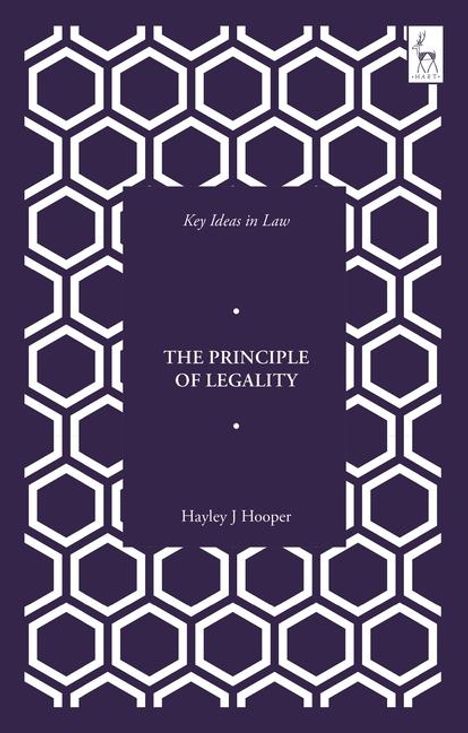Hayley J Hooper: Key Ideas in Law, Kartoniert / Broschiert
Key Ideas in Law
- The Principle of Legality
Lassen Sie sich über unseren eCourier benachrichtigen, sobald das Produkt bestellt werden kann.
- Verlag:
- Bloomsbury Publishing PLC, 08/2026
- Einband:
- Kartoniert / Broschiert
- Sprache:
- Englisch
- ISBN-13:
- 9781509974450
- Umfang:
- 176 Seiten
- Gewicht:
- 454 g
- Maße:
- 234 x 156 mm
- Stärke:
- 25 mm
- Erscheinungstermin:
- 20.8.2026
- Hinweis
-
Achtung: Artikel ist nicht in deutscher Sprache!
Weitere Ausgaben von Key Ideas in Law |
Preis |
|---|---|
| Buch, Gebunden, Englisch | EUR 67,00* |
Ähnliche Artikel
Klappentext
This book provides an account of the most important and controversial aspects of the principle of legality in the United Kingdom.
It explores the many complexities surrounding the historical origins, field of application, mode of operation, and subject matter of legality. Despite its long history, the term 'principle of legality' only began to be used in public law cases towards the end of the twentieth century. More recently, judicial references to the principle of legality in high profile constitutional law cases have fuelled broader concerns about judicial overreach. The book argues that these concerns are unfounded.
The principle of legality describes a phenomenon in statutory interpretation that empowers courts to prevent fundamental common law values from being overridden by unclear legislation. However, it will be shown that it makes more sense to think of multiple principles of legality, rather than a single concept.
The book provides a fresh and detailed perspective on a controversial aspect of the common law. It will be useful for students of law and politics and established practitioners and scholars alike.



